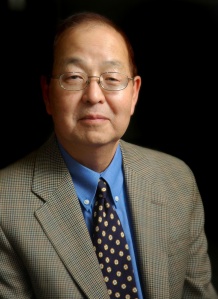Collaborative Divorce: It’s Divorce Without Court
This is the seventh in a multi-part series by A Better Divorce member David Kuroda, LCSW Division Chief, Mediation and Conciliation Service Superior Court of Los Angeles (ret.) titled CHILD CUSTODY ISSUES: AVOIDING TRIAL, RESPONSES TO THE UNPRECEDENTED REDUCTIONS IN COURT FUNDING – A BILLIONAIRE CHOOSES COLLABORATIVE DIVORCE. The article is one of 16 in the family reference materials of The Family Law Symposium, the major family law event for attorneys in So. California. Click here to read through more articles by David.
A BETTER DIVORCE – DIVORCE WITHOUT COURT
Collaborative Divorce is gaining the public’s attention. From being mentioned in the movie “Juno,” as the “latest way of getting divorce,” more prominent couples are choosing Collaborative Divorce. Marshall Zolla and Fred Glassman, representing Patricia Disney and Forrest “Woody” Mosten, representing Roy Disney, settled the entire divorce without the divorce details being mentioned on the “ET,” Entertainment Tonight or TMZ. Robin Williams, represented by Patsy Ostroy, and his wife, represented by Madeleine Simborg – another high profile divorce are able to work out terms of their dissolution, privately, respectfully, fairly. Contrast that with damage to the family in the case of Alec Baldwin and Kim Basinger. In his book, A Promise to Ourselves, A Journey through Fatherhood ad Divorce, Baldwin writes a scathing account of his divorce, including harsh accounts of his lawyers and the court system. He does offer some good advice for persons contemplating divorce.
T. Boone Pickens, for his fourth divorce, chose Collaborative Divorce. He was so pleased with the process, not only did he work things out without going to court, he told a room filled with lawyers the “collaborative approach saves both money and emotional wear and tear on families.” When asked how much the collaborative approach saved him he said “several million.” He was so impressed he donated $100,000 to the Collaborative Law Institute of Texas (http://www.collablawtexas.com/).
In a recent high conflict parenting group I was leading, one of the parents said “I read a really good book.” He had just read Alec Baldwin’s book. The book confirmed many of his own experiences and in a strange way, he felt validated by what he read in A Promise to Ourselves…” It’s a sad commentary when a parent finds solace in a book that is so critical of family law.
Collaborative Divorce offers a far better way of ending marriages.
This exciting new developments in family law is collaborative law, divorce without court (Family Code §2013). The cornerstone of the approach is the stipulation the parties and attorneys sign, eliminating court as an option. The parties sign a Collaborative Participation Agreement which commits the parties to: 1) Participate in good faith to reach a negotiated settlement that addresses both party’s interests and concerns; 2) Each party makes full disclosure to his or her attorney and the other party of all pacts pertinent to their case; 3) The parties communicate respectfully and constructively with each other to settle their case; and 4) Neither parties nor their attorneys will use the court to resolve disputes during the collaborative law process, and if a party decides to withdraws from the process, the attorneys will withdraw and help their respective clients make an economical and orderly transfer to new attorneys. With the removal of the threat of “going to court,” parties and attorneys hold a series of four-way meetings to work out the dissolution. Of course, parties can’t sign away their right to go to court, but it is understood that if the parties elect to go to court, their attorneys withdraw and are prohibited from representing them.
“No other area of law calls upon you, as an attorney, to invest as much time, energy, talent, patience and emotional support as does family law. You daily appear as an advocate in an emotionally charged atmosphere requiring you to keep your objectivity intact and your skills sharp. By attending this Symposium, you are enhancing your knowledge in this critical area of the law and thereby assisting the court in its mission. The Court commends your service to the families of this community.”
Learn more about Collaborative Divorce
David Kuroda is the former Division Chief, Family Court Services, Superior Court of Los Angeles and directed the Mediation and Conciliation Service, the first and largest court mediation program in the nation.
In his 18 years with the Superior Court, he was responsible for the district courts, the PACT and Contemnors’ Programs, Divorce Seminars, and Visitation Monitors. Under his leadership, the service set high standards for the mediation service and other innovative programs serving children and families of divorce.
He has served on numerous committees with the Judicial Council, Los Angeles County Bar Executive Committee, Family Law Section, and has collaborated on numerous programs with the bar associations of the South Bay, Beverly Hills, San Fernando Valley, and Long Beach. He’s the past vice-president of A Better Divorce: A group of collaborative professionals; he also serves as vice-president of the California Social Welfare Archives., on he advisory board of the Los Angeles Collaborative Family Law Association, and was honored with the Lifetime Achievement Award by the National Association of Social Workers (NASW) California Chapter and with the George Nickel Award by the California Social Welfare Archives, USC.
In addition to directing the program, he has personally provided mediation services to over 7,000 families from the working poor to the wealthy and famous, including high profile cases and movie producers. Virtually all parents, whatever their backgrounds, love their children, and with some guidance, have been able to work together, even after divorce. Mr. Kuroda has provided training for graduate students from USC, and has taught professionals child custody mediation.
Always consult a professional in your area.


